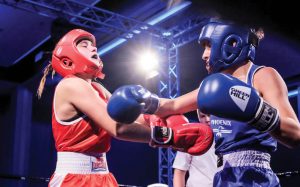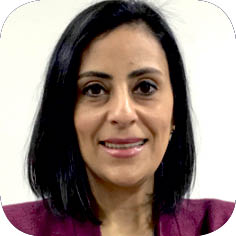As a child of refugee parents, I was born and raised in Gaza, Palestine. Number 10 out of 12 siblings (a full soccer team), not a surprise for a mother who got married at the age of 15 to a photographer who at the time (the 1950s) was one of only two photographers in Gaza. Luckily, and despite his traditional marriage, this photographer was extraordinarily progressive in his relationship with my mother, myself, and my siblings. Through his camera lens, he saw and understood how the prevailing social norms led to inequality and disempowering women, which made him become – to my and my sisters’ good fortune – a champion of women’s empowerment. Although my late father often expressed his conviction by saying, “My daughters have every right to be equal to my sons,” his behavior spoke even more eloquently.

When I decided to get married at the age of 26, I could only do it in a Shari’a court, which meant that I had to accept – however briefly – being perceived as unequal and in need of a male guardian to marry me. I nonetheless did not accept this without a fight, which my fiancé – like my father – was happy to support. After a long argument with the Sheikh who was writing our marriage certificate, I granted myself an equal right of divorce and managed to get my sister and another female friend to sign my wedding certificate as witnesses, which was far from being a normal practice. I simply had to challenge the socially constructed norms that get used by those in power to undermine my basic rights and those of other women. Every little fight – whether individual or collective – against inequality matters. That’s what I strongly believe.
Social norms override laws and religion in so many ways in my society, and the resistance of the judge was a true demonstration of a male perception of which rights for women should be articulated in a marriage certificate, even if those rights are in no way in contradiction with religion or any law. By demanding my rights and ensuring that I have them, I set a precedent in Ramallah’s Shari’a court. I did not ask for these rights because I was rebellious or because I was a gender-equality activist at the time. I was an ordinary young woman who saw herself neither less nor more but equal to her husband. I saw it as a simple act of justice.
I have three daughters, Xena, 14, Yasmeen, 10, and Leena, 5. My husband and I are raising them to believe in themselves and to trust that there is nothing they cannot achieve if they work hard at it. They have options and can make decisions. Failing or winning is not important if they rise when they fall, learn from the experience, and keep trying.

Performance at Birzeit University, February 16, 2019.
Xena set her precedent by becoming the first female boxer to represent Palestine in two international tournaments while at the same time studying violin for the seventh year. Xena will be the youngest female musician to participate in the Palestine Youth Orchestra (PYO) which is due to perform in Dubai Opera House next month. Who said boxing and playing violin do not mix?! While many people support her choices and her ambition to represent Palestine at the Olympics one day, there are others who think that boxing is not for girls.
The small precedent I set in my marriage certificate was followed by two women in my family. Is this now the norm? No. There is a lot of work to be done to educate girls about their legal and human rights, to support them to make decisions about what matters to them in their lives, and to build their capacities and equip them with much-needed skills to compete effectively in local and international markets. This is what we try to do at GROW, a Women’s Economic Empowerment Project funded by the Government of Canada. We try to empower women economically and socially to have a voice and the agency to lead a prosperous life. We do this by engaging supportive men like my father and husband who believe that strong Palestinian women who share equal rights should be the norm, not the exception.
Photos courtesy of the author.


